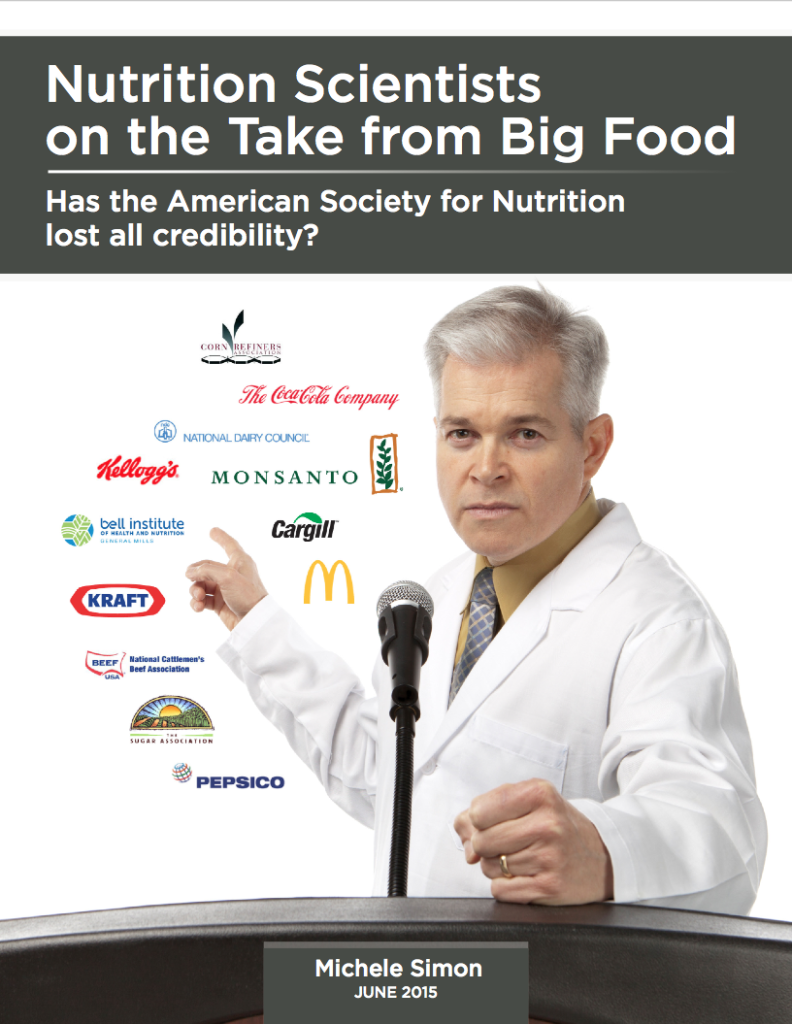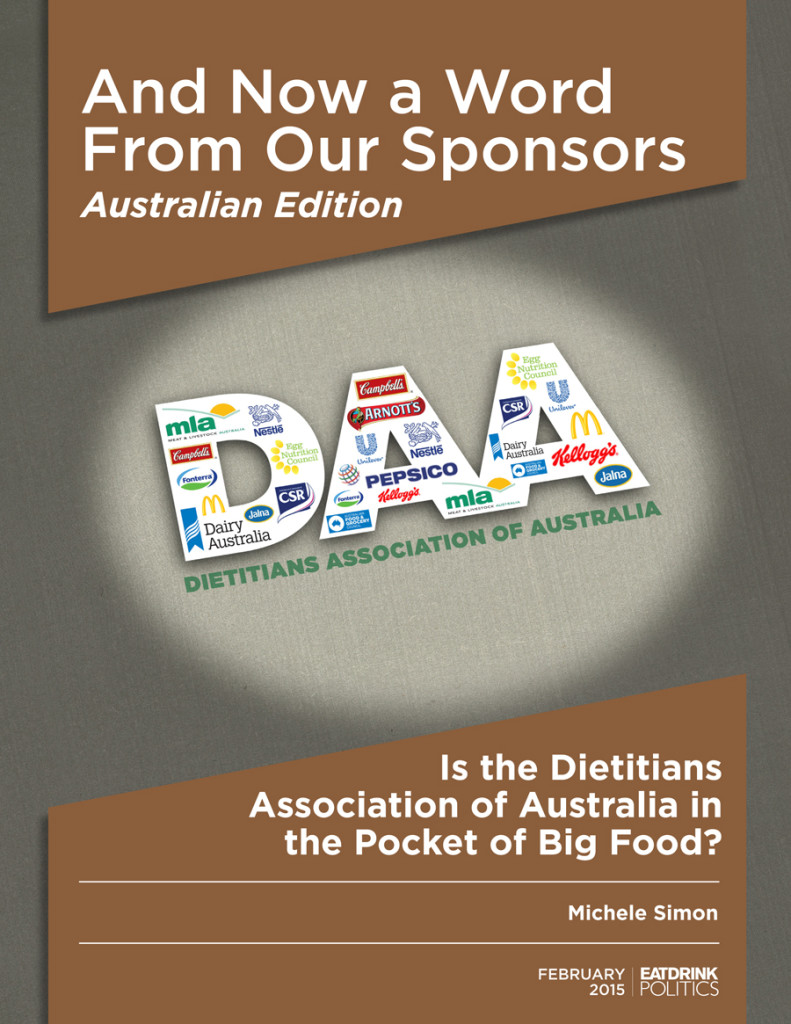As I posted last week, I conducted a legal analysis to counter the claim that considerations of environmental sustainability do not belong in the Dietary Guidelines for Americans. The same week, the USDA and HHS announced they would exclude sustainability from the final document not yet out, despite the Dietary Guidelines Advisory Committee’s recommendations that eating less meat and more plants is best, both for our own health and that of the planet. Below is a media round-up of coverage of my analysis.

Food Policy
The legal basis for sustainability in the Dietary Guidelines for Americans
This week, the House Agriculture Committee is holding a hearing on the controversy surrounding the current update to the Dietary Guidelines for Americans. I have written about the meat lobby’s tactics previously, and in May submitted a letter on behalf of plant-based food companies supporting the recommendation to eat less meat and more plants.
Today I am releasing a legal analysis aimed at countering USDA Secretary Tom Vilsack’s claim that the Dietary Guidelines Advisory Committee went beyond the statutory authority in recommending that sustainability be incorporated into dietary advice. As my analysis shows, the USDA and HHS would be well within its legal authority to include sustainability. In summary:
- A plain reading of the statute does not preclude sustainability;
- The Congressional intent was to further a broad agenda on health;
- Previous DGA versions included issues beyond “nutrition and diet”.
You can download and read the analysis here. Thanks to My Plate, My Planet for supporting this project.
Oct. 7 update: You can also read my op-ed on this topic, published in The Hill.
Hampton Creek targeted by USDA-controlled egg industry program
Potential legal violations uncovered in secret PR effort to damage egg-free competitor
Hundreds of pages of disclosed communications from the American Egg Board reveal a coordinated two-year plan to undermine and attack Hampton Creek, the San Francisco-based food company, seen as a “threat” and “major crisis” to the egg industry.

One of the most important ways that industrial animal agriculture promotes its products is through Congressionally-mandated “checkoff” programs. Each industry member pays into a collective fund that is controlled and managed by the U.S. Department of Agriculture. The American Egg Board is the egg industry’s checkoff program. Very specific rules govern how it operates, all supposedly overseen by the USDA. The Egg Board’s stated mission (which stems from federal law) is “to allow egg producers to fund to carry out proactive programs to increase demand for eggs and egg products through research, education and promotion.”
And yet, USDA’s recent response to a Freedom of Information Act request reveals a number of highly questionable activities that likely violate federal law. The documents (summarized here) are mostly email exchanges between Egg Board executives and others in the egg industry, or with PR consultants, and reveal a disturbing pattern of attacks on Hampton Creek over a two-year period from 2013-2014. (There’s no indication that the campaign has stopped.)
As I documented last fall, Hampton Creek’s early success has touched a nerve in the industrial food industry. These documents show that the lawsuit by Unilever over the start-up’s Just Mayo product was child’s play compared to the Egg Board’s activities. Below is a summary of the most egregious communications.
The End of Chicken
Economic devastation caused by bird flu points to plant-based future
While the western United States is suffering from crippling drought, the Midwest is reeling from an unprecedented outbreak of avian flu, mostly among egg-laying chickens and other forms of poultry. Read rest at Al Jazeera America …
Nutrition Scientists on the Take From Big Food
New Report from Eat Drink Politics asks: Has the American Society for Nutrition Lost All Credibility?
 In my new report, I expose the American Society for Nutrition (ASN), the nation’s leading authority of nutrition scientists and researchers, for its cozy relationships with the likes of PepsiCo, Coca-Cola, Nestle, McDonalds, Monsanto, Mars, and even the Sugar Association. Such conflicts of interest are similar to those exposed in my previous report about the Academy of Nutrition and Dietetics. Powerful junk food companies purchase “sustaining partnerships” from the American Society for Nutrition, gaining access to the nation’s leading nutrition researchers at their annual meetings, and in their policy positions. ASN’s “Sustaining Member Roundtable Committee” includes PepsiCo’s Chief Scientific Officer and the Chief Science Officer at National Dairy Council.
In my new report, I expose the American Society for Nutrition (ASN), the nation’s leading authority of nutrition scientists and researchers, for its cozy relationships with the likes of PepsiCo, Coca-Cola, Nestle, McDonalds, Monsanto, Mars, and even the Sugar Association. Such conflicts of interest are similar to those exposed in my previous report about the Academy of Nutrition and Dietetics. Powerful junk food companies purchase “sustaining partnerships” from the American Society for Nutrition, gaining access to the nation’s leading nutrition researchers at their annual meetings, and in their policy positions. ASN’s “Sustaining Member Roundtable Committee” includes PepsiCo’s Chief Scientific Officer and the Chief Science Officer at National Dairy Council.
Lawsuits Allege Earth’s Best and Similac Organic Infant Formulas Violate Organic Standards
Federal court in New York says – for the first time – consumers can sue over violations of organic law

I am often asked, can we trust the USDA organic seal? My answer is for the most part yes, because it’s based on clearly defined legal standards, as opposed to say, the word “natural.” But two class action lawsuits against leading makers of organic infant formula are making me rethink that answer. One case is against Abbott Laboratories alleging its Similac Advance organic infant formula contains 26 (more than half) ingredients not allowed in organic products; specifically: “irradiated substances, synthetic compounds, or produced from hazardous substances.”
The other case, perhaps more disturbingly, accuses natural food giant Hain Celestial Group of false and misleading labeling by violating the organic standards with its Earth’s Best Organic infant formula, along with numerous other products. (Both cases were filed in New York, the plaintiffs live in New York and California.) From the complaint:
Behind the picturesque red barn of the Earth’s Best logo lies a chemical soup. Of the 48 ingredients in Earth’s Best Organic Infant Formula more than half – 26 are not permitted in organic foods by federal law. More than three-fourths – 38 of the ingredients are synthetic compounds, including artificial flavors, artificial preservatives, artificial colors, toxic compounds, and hazardous substances.
Earth’s Best Organic formula dominates the organic formula market with 65% dollar share. The judge in that case recently made an important legal ruling that could significantly impact future litigation regarding organic products. In its defense, Hain Celestial tried to claim that the federal Organic Foods Production Act preempts or trumps the state-based consumer deception claims made by the plaintiffs. (Preemption is an common defense in lawsuits like this.) But the judge didn’t buy it, denying the defendant’s motion to dismiss and allowing the case to move forward. In doing so, the court said:
[T]his Court rejects the premise that once a certifying agency has passed on a product’s organic status, a state-law verdict may not deem the sale or labeling of that product as “organic” false or misleading.
This ruling is important because it allows for a private right of action under state consumer protection laws for alleged violations of federal organic standards. In an apparent attempt at damage control, Hain Celestial put out a press release on Monday claiming its “full line of Certified USDA Organic Formulas [is] made with pure, high quality ingredients for babies and toddlers.” The release also notes: “The organic formula industry continues to grow and is relied on by parents deeply.” That much is true. That’s why it’s especially troubling if parents have been deceived into feeding their babies formula labeled certified organic that in fact contains numerous unapproved ingredients.
(Disclosure: I occasionally consult with one of the law firms involved; I was not paid to write this.)
Media Coverage for Plant Foods Coalition and Dietary Guidelines
As I posted earlier this week, I submitted comments on behalf of new coalition of plant food companies to support the Dietary Guidelines Advisory Committee’s recommendations to lower red meat and processed meats and increased plant foods. I am pleased that the following media outlets picked on this story. More at: LessMeatMorePlants.com
Tell the feds: “Yes to less meat, more plants”
Science and public health could finally prevail in federal dietary advice
Every five years the federal government updates the Dietary Guidelines for Americans. The idea is to help Americans eat right, while informing nutrition standards for food assistance programs such as school meals. The “Dietary Guidelines Advisory Committee” (DGAC) has spent the past two years reviewing research and holding public hearings. The process is rigorous and the committee is not exactly radical.
Big Beef’s jig is up
Federal dietary committee recommends eating less red meat. Will science finally trump politics?
You almost have to feel sorry for the beef industry. After enjoying decades of popularity as a staple of the all-American diet, the harsh realities behind unsustainable beef production and excessive consumption are finally coming to light. The latest red meat scare comes from the U.S. Dietary Guidelines Advisory Committee (DGAC) a scientific body formed every five years to review the latest research available to tell the American public how to eat right. In the past, the committee’s work has been undermined by members with conflicts of interest with the meat, egg and dairy industries. But this year’s committee pulled no punches, even extending its reach to environmental considerations for the first time. The recommendations are not the final word on the matter. Later this year, the federal government will issue its formal Dietary Guidelines for Americans after reviewing the committee’s research and public comments. Read rest at Al Jazeera America …
Is the Dietitians Association of Australia in the Pocket of Big Food?
New Report from Eat Drink Politics Exposes Conflicts of Interest in Australian Dietitians Group
 Just as most western nations do, Australia suffers significantly from diet-related chronic diseases. Heart disease is the leading cause of death, killing one Australian every 12 minutes. Diabetes is also a serious health concern, with rising rates in recent years, according to the government.
Just as most western nations do, Australia suffers significantly from diet-related chronic diseases. Heart disease is the leading cause of death, killing one Australian every 12 minutes. Diabetes is also a serious health concern, with rising rates in recent years, according to the government.
The 2013 report, “And Now a Word from Our Sponsors,” also from Eat Drink Politics, found that the Academy of Nutrition and Dietetics in the United States has a serious credibility problem due to its myriad conflicts with the junk food industry. Sadly, a very similar situation exists within Australia’s dietetic profession, led by the Dietitians Association of Australia. Among the most troubling findings of the new report from Eat Drink Politics:












